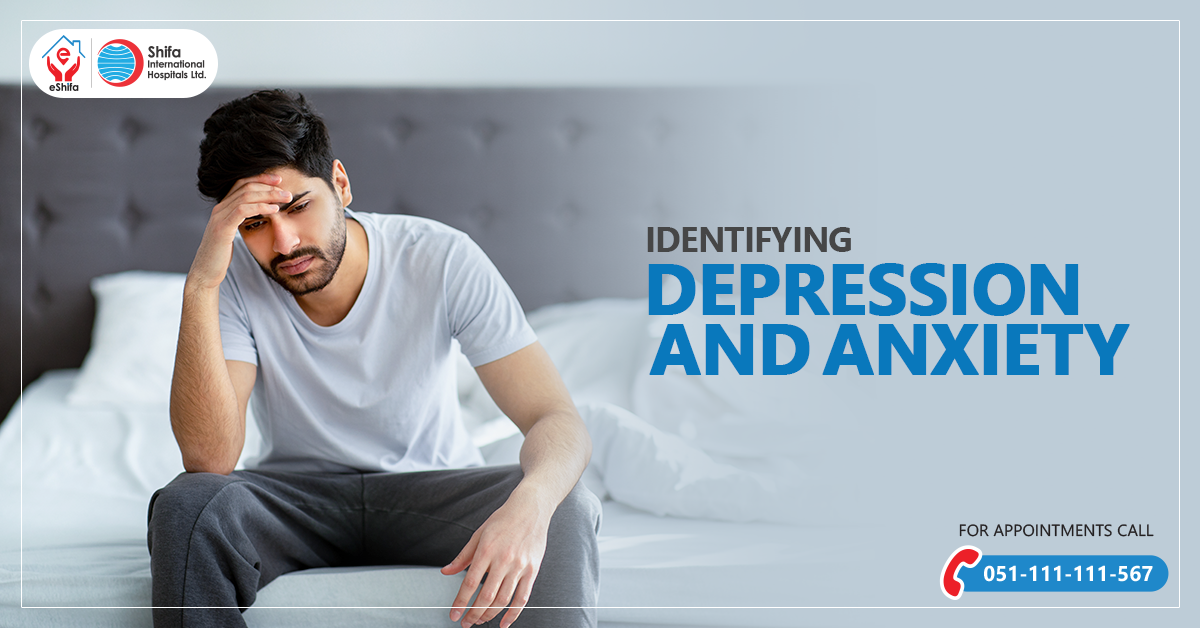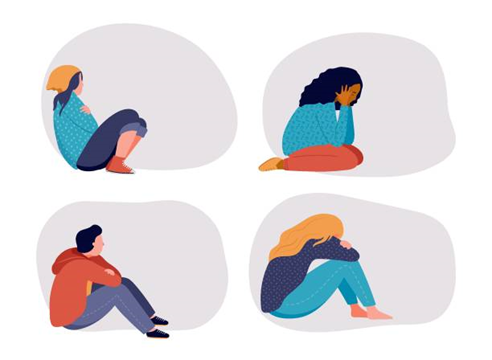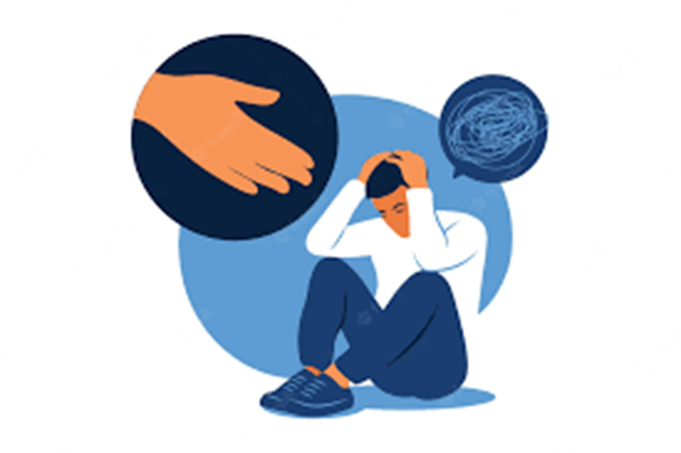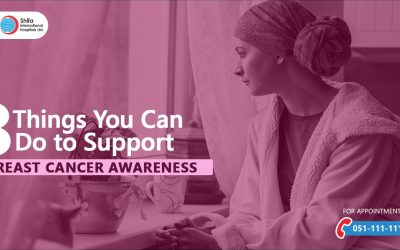How are Depression and Anxiety linked together?
Depression and anxiety are dissimilar for the most part. The main symptom of depression is typically a persistent low, sad, or hopeless mood, while anxiety mainly involves intense feelings of worry, edginess, and fear.
But these conditions have a variety of key signs with some overlapping symptoms as well. Anxiety often involves irritability — and depressed people may sometimes feel more irritable than sad or gloomy.
These conditions appear differently and vary from person to person. According to a survey, it is also possible to have both depression and anxiety simultaneously. The common thing about both conditions is that it can improve with support and treatment.
What Is Depression?
Depression is a common mental disorder, it is a leading cause of disability worldwide and is a major contributor to the overall global burden of disease. Most women are more affected by depression than men.
Depression is different from usual mood swings and short-lived emotional responses to everyday challenges. When recurrent and with moderate or severe intensity, depression may become a serious health condition. It can cause the affected person to suffer greatly and impacts their functionality, especially at work, school and in the family. If not treated on time, in severe cases, depression can also lead to suicide.
Symptoms of Depression
Along with a low, sad, or hopeless feeling, depression can also involve the following symptoms:
- Loss of interest or fun in routine activities and hobbies
- a sense of hopelessness or pessimism
- anger, irritability, and restlessness
- Low energy levels
- chronic fatigue or insomnia
- changes in appetite and weight
- difficulty concentrating, making decisions, or remembering information
- Body aches and pains or gastrointestinal concerns
- feelings of guilt, worthlessness
- Suicidal thoughts in worse cases
What Is Anxiety?
Having occasional anxiety is a normal part of life. However, people who experience anxiety disorders frequently have intense, excessive and persistent worry and fear about everyday situations. Anxiety disorders involve repeated episodes of sudden intense feelings of anxiety and fear or terror that reach a peak within minutes causing panic attacks.
These feelings of anxiety and panic hinder a person’s daily activities, are difficult to control, and can last for a long time.
Anxiety is part of how you respond to stress. People can experience some anxiety:
- before major life events
- when making important decisions
- when trying something new
The main signs of ongoing anxiety include:
- difficulty managing and controlling fear and feelings of worry
- irritability, restlessness
- a sense of panic
- sleep problems
- persistent fatigue
- brain fog
- headaches, muscle tension, nausea, and diarrhea
How to Manage Both?
If you’re not feeling quite like yourself, a good next step involves reaching out to a mental health professional, clinical psychologist or a physician from Shifa International Hospital, who can diagnose and treat anxiety and depression.
A therapist offers more guidance on treatment options for anxiety and depression, but you can also take steps to cope with symptoms on your own.
Reach out to us at https://www.shifa.com.pk/rehabilitation-services/ for further information.
See the doctor if:
- You feel like you’re feeling overwhelmed and worrying too much and it’s interfering with your work, relationships or daily life.
- Your fear, worry or anxiety is distressing to you and is out of control.
- You feel depressed, have trouble with intoxicants, or have other mental health concerns along with anxiety.
- You think your anxiety could be due to a physical health problem
- You have suicidal thoughts or behaviors — if this is the case, seek emergency treatment without any delays.
Your worries may not go away on their own, and they may get worse over time if you don’t seek help. See Shifa International Hospital’s doctor or a mental health expert before your anxiety gets worse.
To book an appointment with Shifa International Hospital’s best doctors and Psychological counselors, please call 051-864646 or download our eShifa App from Play store or Apple store now.
Early diagnosis results in better treatment. Focus on your mental health and stay fit and healthy!







0 Comments